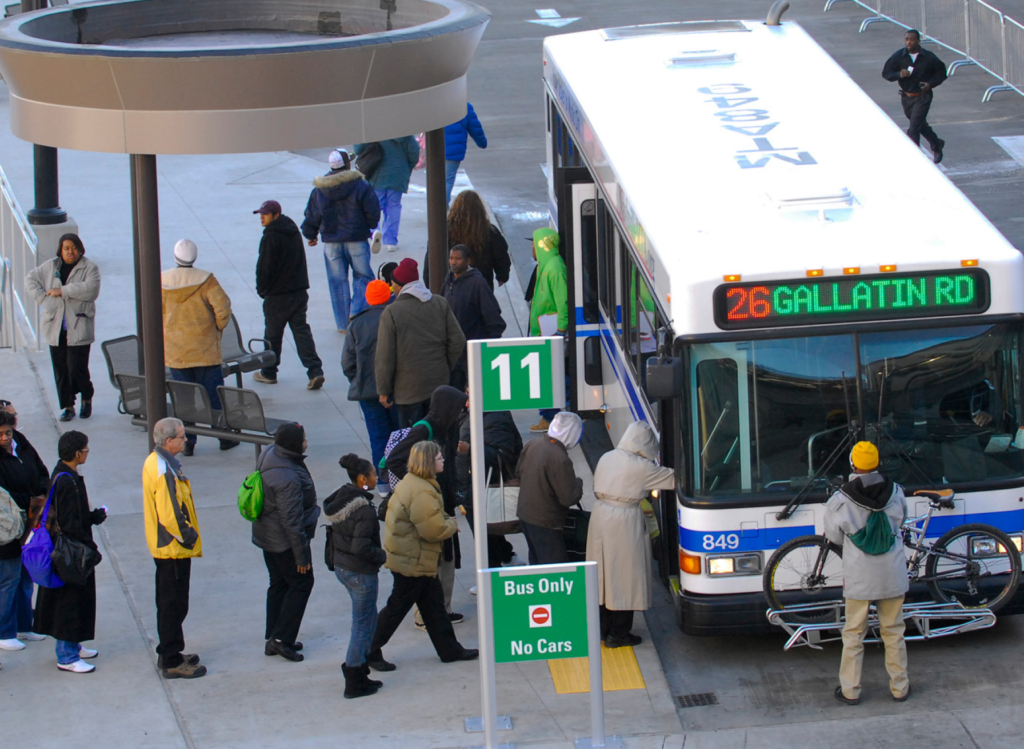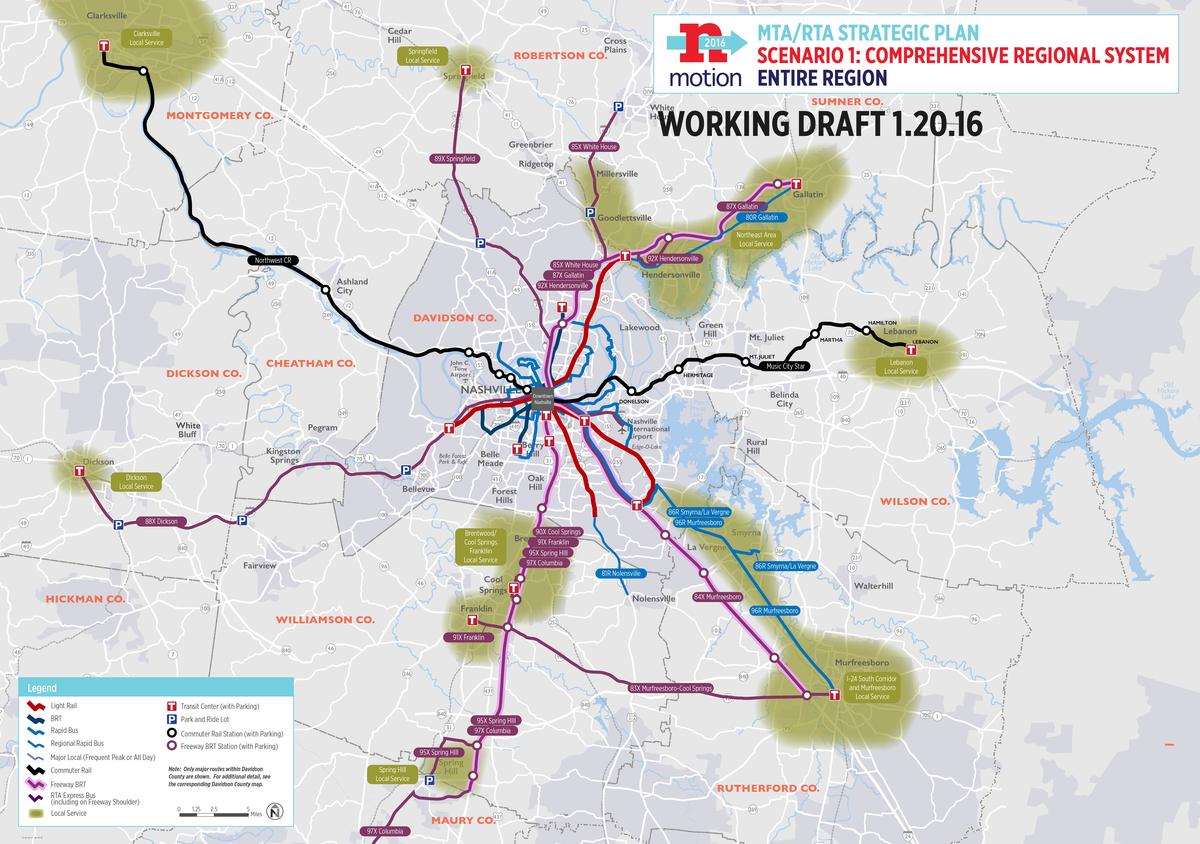
Light rail, faster buses, and even streetcars were revealed Thursday in Nashville’s most ambitious plans ever for mass transit — although they’re still in draft form.
To create a complete transit system for all of Middle Tennessee, officials estimate a cost of several billion dollars over the next two decades — $5.4 billion for capital costs and $300 million each year to operate, if it gets built.
The Metro Transit Authority has not committed to such a vision.
But in laying out the possibilities, CEO Steve Bland had his eye on the 1 million new residents expected in the next 20 years.
“Nashville’s at a point where we need to as a region, say, ‘OK, it’s time to bite the bullet and, you know, make some investments in our infrastructure, so that we can continue to support growth,’ ” Bland said.
“I’d also argue it’s costing us now,” he said. “If you live in Murfreesboro and you work in Nashville and you’re losing 45 minutes a day you could be spending with your kids, you know, don’t tell me you’re not paying for a transportation system that isn’t working well.”
At the top end, officials picture a high-speed network of buses and trains that can attract five times as many riders as right now.
More:
See detailed transit ideas (PDF)
The second, lower-cost option would mostly improve bus service along major corridors and the interstates.
The cheapest scenario — to tweak current bus routes — doesn’t require much additional money. But it also wouldn’t ease congestion.

Bland said the public must now answer key questions.
“What are people willing to invest in? What are people willing to support? What will people ride and how do they want to travel and live?”
After nine months of the planning process known as nMotion, a fresh round of public meetings will begin soon, before officials arrive at specific proposals in late spring or summer.
All of the scenarios include better technology, pedestrian safety measures, and routes that are easier to understand.
Some of the first feedback on the presentation came from MTA Board Chairman Lewis Lavine, who said he hopes the public will support spending for transit. He praised the regional view of what was included.
“We continued to hear, what’s the regional plan?” he said. “For the first time, I think, we’re starting to see some pieces, some components of what that plan might be.”



